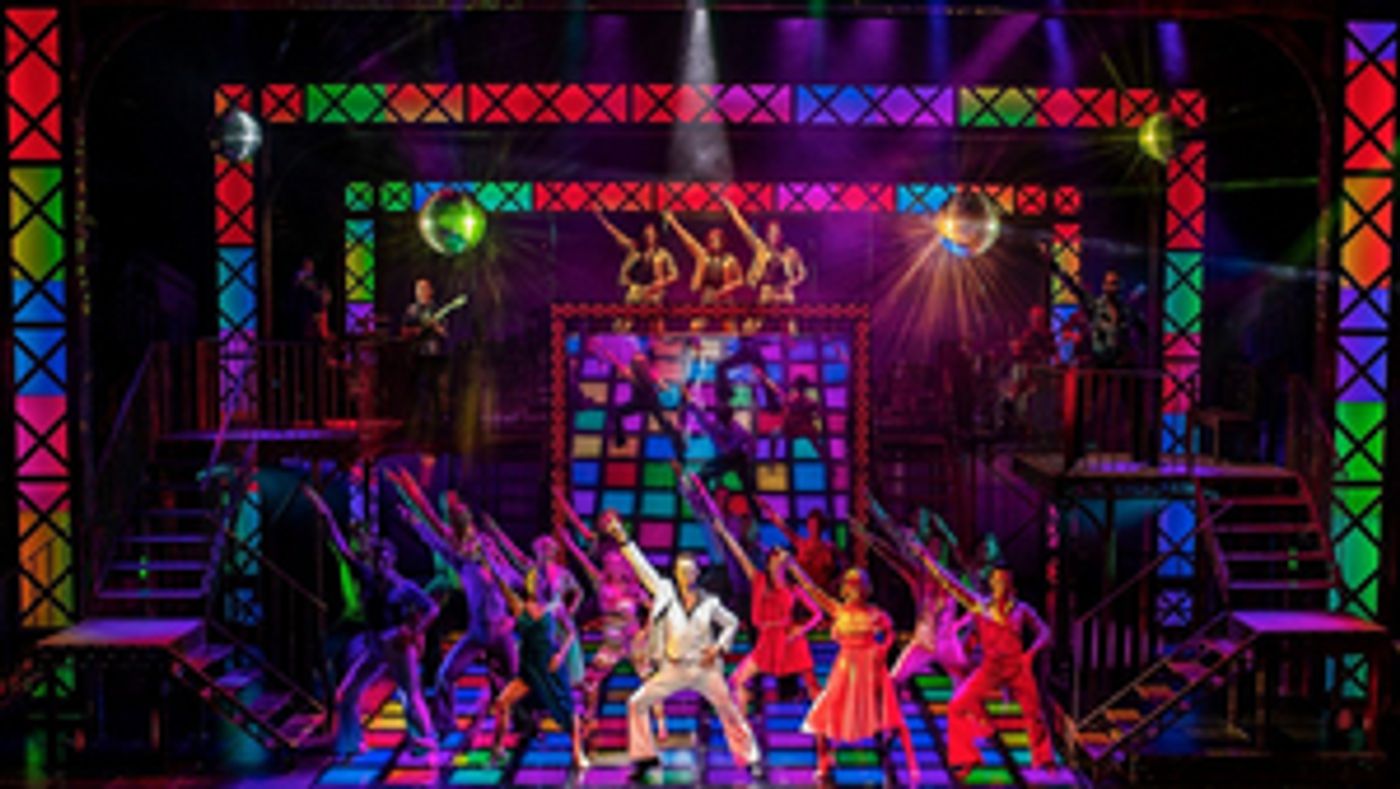Review: SATURDAY NIGHT FEVER, Peacock Theatre
Get your dancing shoes on for this limited London run

![]() After a couple of years of staying at home and catching up on all the boxsets and films you never got round to watching, it appears the West End has had a similar idea; Saturday Night Fever is the latest movie-based musical to hit the stage, joining the likes of Dirty Dancing, Back to the Future, Pretty Woman, and Moulin Rouge! The Musical. Following a short tour, the Bee Gees & John Travolta classic hits the West End for a limited run.
After a couple of years of staying at home and catching up on all the boxsets and films you never got round to watching, it appears the West End has had a similar idea; Saturday Night Fever is the latest movie-based musical to hit the stage, joining the likes of Dirty Dancing, Back to the Future, Pretty Woman, and Moulin Rouge! The Musical. Following a short tour, the Bee Gees & John Travolta classic hits the West End for a limited run.
Tony Manero is in a rut. He's stuck in a dead-end job, living at home in Brooklyn with his parents and sister, and there's no sign of a way out. The only thing he can do to distract himself from the drudgery is go out on a Saturday night with his old school friends, dancing their way into the early hours - and Tony is better than the average dancer. When a competition is announced, his friends convince him to enter and he reluctantly agrees to partner Annette, who has feelings for him that he doesn't reciprocate.
He quickly ditches her, however, when the enigmatic Stephanie says she'll enter the contest with him, on the condition that things remain strictly professional between them; she has her sights set on a better life in Manhattan, and makes it clear that a relationship with Tony would be a step back for her. A friendship blossoms as they work on their routine, but the pair's chances are threatened when Tony gets into a fight with a local gang...
Saturday Night Fever is similar to Dirty Dancing in that they have both clearly been chosen for the stage on the basis of their feel-good dance numbers, but in actual fact the two films have some quite dark moments and cover serious themes - abortion, youth disenfranchisement, and suicide. This creates a headache for a director when trying to gauge what the tone of the show should be. By and large Saturday Night Fever does a reasonable job; though it does commit to the dramatic narrative, the dancing is clearly the focus of this production.
Something that doesn't help is the volume of quite short, snappy scenes. This obviously works well on film, but on stage it can be quite unsettling as props get wheeled off almost as soon as they've been brought on. As some of the transitions are quite clunky and cumbersome, perhaps several short scenes could take place one after the other in different parts of the stage - this would cut down the number of transitions and make the show flow a little better.
Alternatively, finding a way of extending some scenes would be rewarding, as it currently doesn't feel like the audience can dig into any of the characters aside from Tony. This is true of Bobby C's dilemma, but mostly of the women in the show; Annette is quite one-dimensional in her lovesick state, and Tony's sister is little more than set dressing, to name but two. Even Stephanie feels a bit neglected - as a result, Olivia Fines shines brightest when she's dancing, and does her best to bring a spark to the character.
It's probably impossible to avoid the language of the time entirely - and the associated style of humour - but much of it does come at the expense of the female characters, which gets a little jarring. Many of these do end up falling a little flat, which is indicative of times moving on.
Richard Winsor steps into John Travolta's shoes as Tony Manero - he certainly has the skills to lead a dance-based show, given his previous credits with Matthew Bourne, however I can't help but feel that this would have been a great opportunity to thrust a graduate into the limelight. The unfortunate thing is that Winsor does look older than many of the castmates who are supposed to be roughly the same age; he's got the charm, but it does make you wonder.
As you'd imagine, there are lots of dance numbers (featuring new choreography from Bill Deamer) and the company shows great stamina to power through them all at the requisite energy level. The performance I attended was heavily affected by the Tube strikes, but they still managed to energise a depleted audience by the curtain call.
What is a stroke of brilliance is the decision to have a live band and 'Bee Gees' onstage to perform all the songs. The immediacy of this adds a real punch, plus it allows the cast to go all-out on the dancing as they don't have the responsibility of taking lead vocals for the majority of the show; Jake Byrom, Oliver Thomson and James Hudson tackle the falsetto-heavy songs well, making it feel as though the Gibb brothers have reunited in their seventies heyday.
On the whole, there's a lot to enjoy about this production - the thrill of the live music being right up there. With a host of recognisable tunes and dance moves to mimic, this show will get your toes tapping from start to finish.
Saturday Night Fever is at the Peacock Theatre until 26 March
Picture credit: Paul Coltas
Reader Reviews
Powered by
|
Videos

